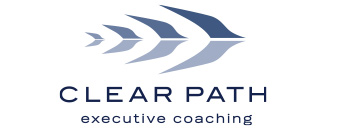As Alvin Toffler, the American writer and futurist, presciently wrote in 1990, “The illiterate of the 21st century will not be those who cannot read and write, but those who cannot learn, unlearn, and relearn.”
The importance of continuous self-transformation – to our livelihoods, relationships and physical and emotional well-being – was a central theme of the 5th annual Harvard Medical School Coaching in Leadership and Healthcare conference that took place in Boston a couple of weeks ago.
Once again, the line-up of speakers was fantastic. For me, the high point was participating in a coaching workshop led by Robert Kegan, a pioneer in the field of adult learning and development. We also heard from David Katz, a doctor who is working on many fronts to turn the tide on our country’s obesity epidemic, David Whyte, a poet, author and corporate creativity consultant, and several others, a few of whom I mention below. As I did last year, I’ll share some conference highlights here, along with links to additional information you might find interesting.
1. Building a better brain
 We are living in a time of unprecedented complexity, volatility and uncertainty, which is wreaking havoc on our stone-age central nervous systems. As Dan Goleman, one of the leading authorities on emotional intelligence, explained, the same hair-trigger response to danger that kept our ancestors safe from predators is activated today by threats that are often more symbolic than real. So as marvelously evolved as our executive function capabilities might be, many of the slights and arrows we absorb at work – including feeling disrespected, being treated unfairly and not being listened to – flood our brain with cortisol, adrenaline and other hormones that stimulate our fight or flight response but impede our cognitive performance. And then make us tired and crabby.
We are living in a time of unprecedented complexity, volatility and uncertainty, which is wreaking havoc on our stone-age central nervous systems. As Dan Goleman, one of the leading authorities on emotional intelligence, explained, the same hair-trigger response to danger that kept our ancestors safe from predators is activated today by threats that are often more symbolic than real. So as marvelously evolved as our executive function capabilities might be, many of the slights and arrows we absorb at work – including feeling disrespected, being treated unfairly and not being listened to – flood our brain with cortisol, adrenaline and other hormones that stimulate our fight or flight response but impede our cognitive performance. And then make us tired and crabby.
After a day doing battle, it’s difficult to make healthy choices (gym vs. TV, a healthy meal vs. comfort food), not pick a fight with someone we love, muster patience and empathy – or even fall asleep. It’s no wonder so many of us are so anxious at work, irritated and emotionally disconnected at home. . . oh yes, and fatter and more sleep-deprived as a nation than ever before.
The remedy? According to Dan Siegel, founder of the Mindsight Institute and co-creator of the Healthy Mind Platter, whose techniques for changing and rewiring the brain have captured the interest of, among others, the Dalai Lama, there are seven essential activities for cultivating a healthier, more resilient, wiser mind we should be engaging in each day:
- Focus time – Fosters deep connections in the brain
- Play time – Novel experiences, spontaneity and creativity help make new neural connections
- Connecting time (preferably in person) – Activates the brain’s relational circuitry
- Physical time – Movement strengthens the brain in many different ways
- Time in – The act of internal reflection helps to better integrate the brain
- Down time – Allows our brain to recharge
- Sleep time – Critical for learning and recovery from the day’s experiences
What do you reliably find time for? What doesn’t make it onto your plate? How can you achieve a more balanced day?
2. Leading with emotional intelligence
All of us are part of families, organizations and other communities with internal “weather systems” that impact us in profound ways. As assiduously as we may strive to fortify our minds, cultivate greater tranquility and develop broader, more inclusive perspectives, our sense of ourselves and the possibilities available to us is highly influenced by those around us.
Many of the people I coach work in intense, high-stress corporate environments where sub-optimal weather conditions prevail. It affects them on many levels – their sense of agency, their ability to feel optimistic about the future, even their own management style.
So I was particularly interested to hear Dan Goleman talk about how emotionally intelligent leaders can function as a “secure base” even in challenging environments, essentially absorbing negativity and creating supportive micro-climates where their teams aren’t just surviving, but thriving.
Managers who understand the power of flow and deliberately leverage leadership competencies including self-awareness, social awareness, self-management and relationship management to help their people achieve this optimal work state have happier, healthier teams – and better business outcomes. You can see how this same principle is equally relevant to parenting.
Are you a secure base at work? At home? If you’re tired of stormy weather in your life, what changes can you make to usher in bluer skies?
3. Start making sense
Deborah Ancona, a professor at the MIT Sloan School of Management who also consults on leadership and innovation to large organizations, made a compelling case that “sensemaking,” or the ability to understand a rapidly changing environment and create a richly informed map to navigate it more effectively, is a critical leadership capability for the complex, dynamic world we now live in. (It’s one of four leadership competencies Ancona and her colleagues teach at MIT; the others are relating, visioning and inventing, all of which are relatively straightforward).
For me, finally having a name for a skill I help people develop, that I recognize is vitally important to both leadership effectiveness and making successful career transitions, was a revelation.
In a more in-depth exploration of the topic, Ancona wrote, “Sensemaking is not about finding the ‘correct’ answer; it is about creating an emerging picture that becomes more comprehensive through data collection, action, experience, and conversation. The importance of sensemaking is that it enables us to act when the world as we knew it seems to have shifted.”
Are you operating off of an outdated map? Could you use a new one? How would you go about getting the information you need to create it?









